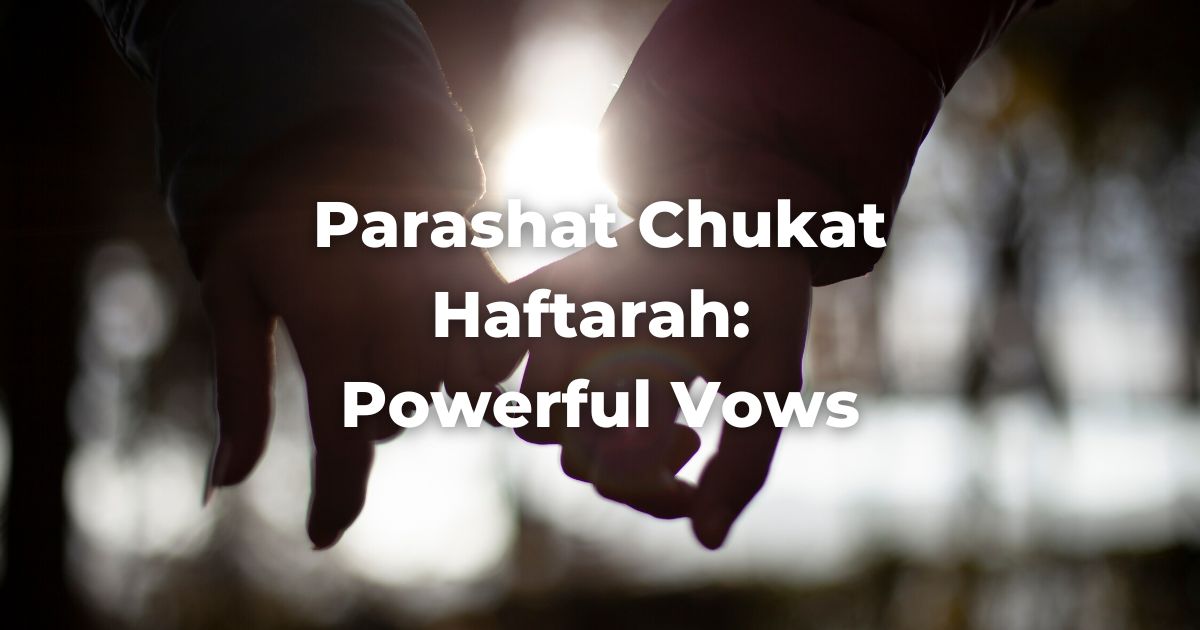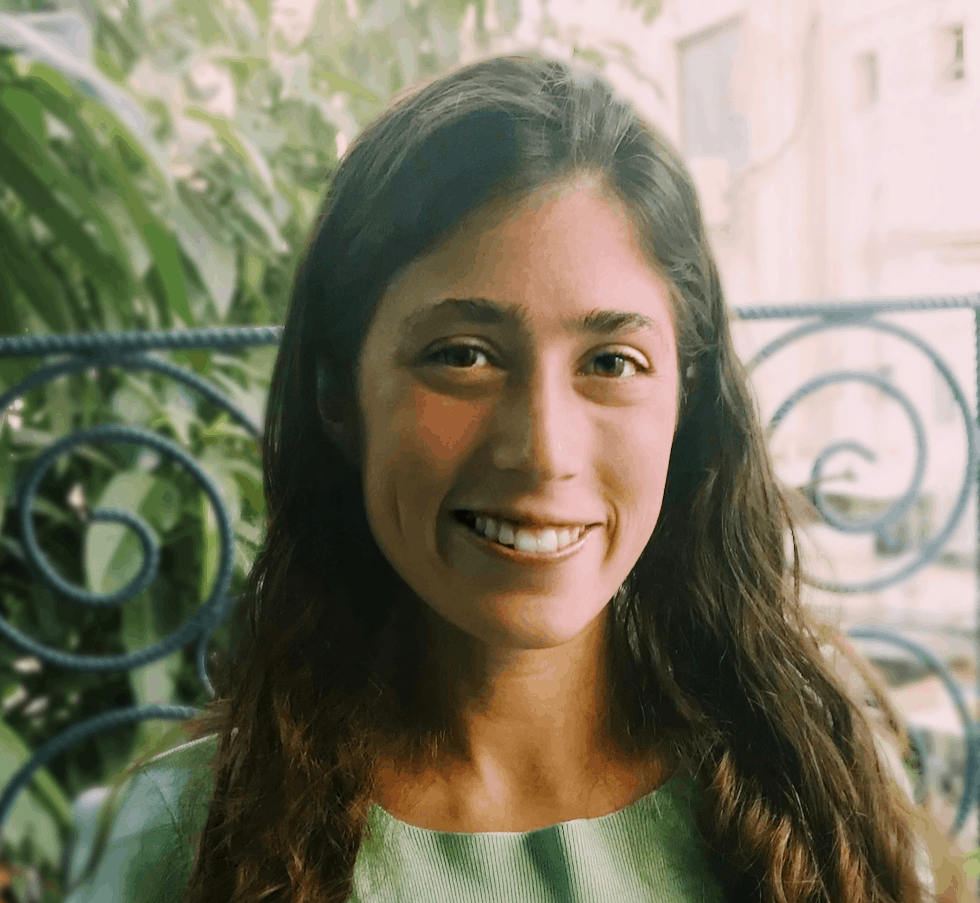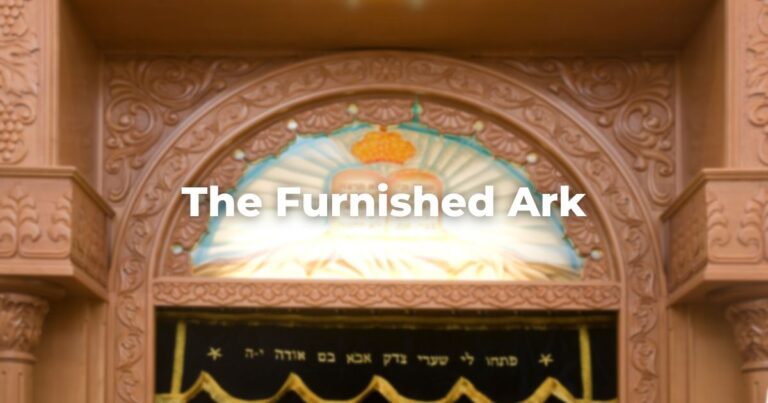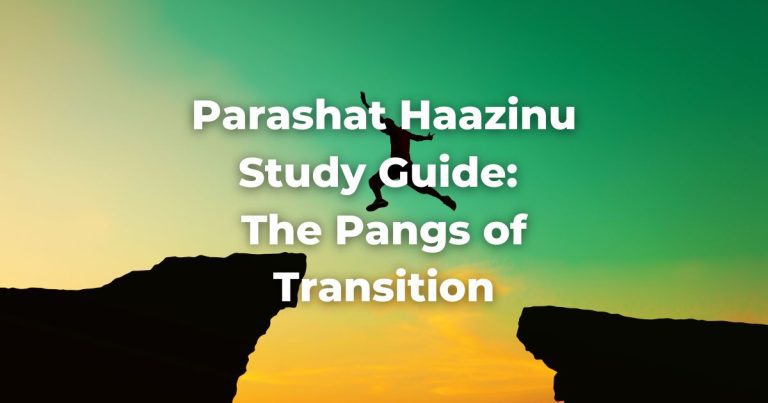Our haftarah reading this week, Judges 11:1-33, stops in the middle of the story it is telling.
Vows for Sacrifices, No Matter the Sacrifice
The story continues as a terrifyingly twisted retelling of the akeda—here a father sacrifices his daughter as a burnt offering to God. He has made a vow to God that if he wins in battle, he will sacrifice the first thing that comes out of his door when he returns home.
That first thing turns out to be his daughter. And so the father kills her, he fulfills his vow. No angel intervenes. No ram is found in the bushes.
Reading just our haftarah tells a different story. The story begins with a strong warrior, forced to flee his homeland by his brothers and tribesmen because he was born to a prostitute. Jephthah rebuilds from nothing, creating a community of those who have been passed over by the world.
Eventually, the elders of his homeland turn to him to save them from a foreign threat, making him their chief. Jephthah beats the enemy totally and completely, assuming his place as chief of his tribe.
And so our haftarah ends, with the happily ever after implied so long as you don’t keep reading.
Jephthah succeeds thanks to his ability to negotiate his own terms. He is constantly trading up, offering what he has for what he wants. He makes conditional promises—if he delivers, he expects the other party too as well. When the elders need his help, he offers it only so long as they make him their head and God delivers him.
They accept.
Jephthah informs God of the whole plan and, lo and behold, he succeeds. Jephthah negotiates once more, right before he enters into battle. This time, the other party is God. The promise is the giving of whatever comes out of his house as a burnt offering to God on the condition that Jephthah win the battle and return home safely.
This sort of conditional promise is often referred to as a vow.
They are fairly common in the TanakhAn acronym for the name of the Hebrew Bible: Torah, Neviim, and Ketuvim. Read more: Jacob promises to build an altar if he returns home, Hannah promises to dedicate her child if she becomes pregnant, Absalom lies to David about a vow he made. They are complicated rules for making, fulfilling, and negating vows that suggest that vow-making is not something to be taken lightly, if taken at all.
Our parasha presents us with a happily-ever-after story of a vow.
The king of Arad attacks Israel and takes some Israelites prisoner. The rest of the Israelites vow that if God gives them victory over Arad, they will commit herem, utter destruction and consecration to God, of all the people in Arad.
God grants them victory and the Israelites kill everyone and everything so thoroughly that the place is renamed Hormah, destruction. The vow is fulfilled, victory is granted, and everything seems right, just as it does in our haftarah.
But hiding behind the story of our haftarah is the death of an innocent child.
By putting our haftarah in conversation with our parasha, we lift up the hidden tragedy of herem, total destruction of the people of Arad, which our parasha skims over. While we can count on God to keep God’s end of any bargain made, perhaps we should be wary of getting into bargains with God. Abraham bargains with God for the people of Sodom and nearly pays the price with the life of his son.
We cannot all count on finding rams.
See more: Parashat Chukat
Originally posted as part of the Conservative Yeshiva at the Fuchsberg Jerusalem Center’s Torah Sparks. Support TorahRefers to the first five books of the Hebrew Bible, the Tanakh, also called the Five Books of Moses, Pentateuch or the Hebrew equivalent, Humash. This is also called the Written Torah. The term may also refer to teachings that expound on Jewish tradition. Read more learning from the Fuchsberg Jerusalem Center/Conservative Yeshiva for leaders and seekers around the world here.
Authors
-

Bex Stern Rosenblatt is the Conservative Yeshiva’s Faculty-in-Residence for the Mid-Atlantic Region of the United States, teaching Tanach, using the techniques of close-reading, theater, feminist readings, and traditional commentators. Bex also directs the CY’s recruitment efforts in North America. After finishing her B.A. in History and German at Williams College, Bex received a Fulbright Grant to Austria. She later earned an M.A. in Tanakh from Bar Ilan University and has also studied at the Conservative Yeshiva and Bina Jerusalem. Bex is the founder of HavrutaA study partner. A hevruta is more than just a ‘study buddy’ it is a serious and personal relationship between colleagues. Also spelled: Havruta Read more Tel Aviv, an organization that facilitates guided pair-learning of the Tanakh.
View all posts -



The Fuchsberg Jerusalem Center (FJC) is a home in the heart of Jerusalem where leaders and seekers can find an authentic place in Jewish tradition to call their own. FJC offers opportunities to study, pray and explore within an egalitarian and inclusive setting, creating multiple pathways for finding personal and communal meaning.
View all posts






